
What really brings Minnesotans together?
-
Fried food on sticks.
-
Working together to solve big problems.
While CURE doesn’t excel at culinary delights on sticks, we are leading the way, tackling some of the biggest problems facing Minnesotans to create a better tomorrow for everyone —and we didn’t take the summer off from this fight.
CO2 Pipelines
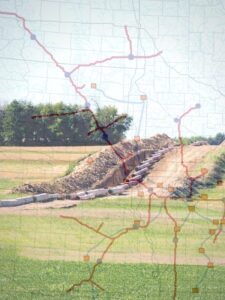 In early August, the North Dakota Public Service Commission dropped a bombshell decision rejecting Summit Carbon Solutions’ route permit application for its CO2 pipeline, deeming it to be “deficient” in many areas. The denial shows that CO2 pipeline projects are not inevitable in the Midwest. Following the decision in North Dakota, CURE filed a petition with the Minnesota Public Utilities Commission to halt Summit’s route permit application process for the Otter Tail-Wilkin segment of their proposed 250+ miles of CO2 pipeline in Minnesota. If Summit has no viable route to an approved pipeline in North Dakota, permitting a portion in Minnesota would be pointless, a pipeline to nowhere.
In early August, the North Dakota Public Service Commission dropped a bombshell decision rejecting Summit Carbon Solutions’ route permit application for its CO2 pipeline, deeming it to be “deficient” in many areas. The denial shows that CO2 pipeline projects are not inevitable in the Midwest. Following the decision in North Dakota, CURE filed a petition with the Minnesota Public Utilities Commission to halt Summit’s route permit application process for the Otter Tail-Wilkin segment of their proposed 250+ miles of CO2 pipeline in Minnesota. If Summit has no viable route to an approved pipeline in North Dakota, permitting a portion in Minnesota would be pointless, a pipeline to nowhere.
“The MN PUC should see this rejection by a sister-state regulator as a ‘red flag’ and not rush to approve a project not supported by sufficient evidence of its value or safety,” — Sarah Mooradian, CURE
CURE’s Peg Furshong was also quoted in a recent StarTribune article. Minnesota, unlike neighboring states, does not currently have eminent domain for CO2 pipelines. This does not make CO2 pipelines any less of a threat to Minnesota, but it does make the fight look different.
Carbon Dumping in National Forests
 CURE was part of a coalition of six organizations and almost 10,000 petition signers opposing the U.S. Forest Service’s move to change its rules to allow for permanent “carbon dumping” on national forest lands. The Forest Service’s longstanding rules for special-use permits currently forbid any uses that would permanently encumber National Forest lands for private gain. The Forest Service has announced it will soon put out a proposed change to this rule, which is meant to allow permanent storage of carbon waste on National Forest lands.
CURE was part of a coalition of six organizations and almost 10,000 petition signers opposing the U.S. Forest Service’s move to change its rules to allow for permanent “carbon dumping” on national forest lands. The Forest Service’s longstanding rules for special-use permits currently forbid any uses that would permanently encumber National Forest lands for private gain. The Forest Service has announced it will soon put out a proposed change to this rule, which is meant to allow permanent storage of carbon waste on National Forest lands.
“This is the public’s land. The idea that a private company, or the oil and gas industry specifically, can permanently spoil public lands that belong to all of us is just antithetical to the idea of a national forest.” – Hudson Kingston, CURE
DNR outrageously mismanages lands –> FWS withholds $22 million for the abuses
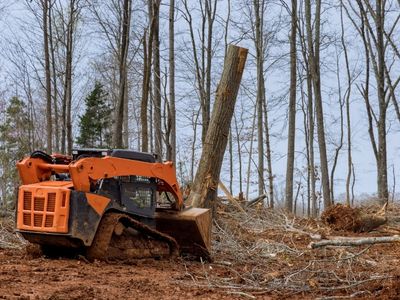 This month, the U.S. Fish and Wildlife Service (FWS) announced it is withholding $22 million in funds from the Minnesota Department of Natural Resources (DNR) because for the past five years the DNR has been exploiting wildlife lands for timber instead of managing them for wildlife habitat. Both federal and state law requires DNR to only allow timber cutting on these lands to promote habitat, but instead they have been issuing timber permits in order to satisfy a cordage quota, without deferring to wildlife experts on how much and what to cut. In a very unusual move, the federal agency has paused giving this money until DNR can retroactively prove that it has been following wildlife-first policies for every timber sale that was issued during the quota-based timber policy.
This month, the U.S. Fish and Wildlife Service (FWS) announced it is withholding $22 million in funds from the Minnesota Department of Natural Resources (DNR) because for the past five years the DNR has been exploiting wildlife lands for timber instead of managing them for wildlife habitat. Both federal and state law requires DNR to only allow timber cutting on these lands to promote habitat, but instead they have been issuing timber permits in order to satisfy a cordage quota, without deferring to wildlife experts on how much and what to cut. In a very unusual move, the federal agency has paused giving this money until DNR can retroactively prove that it has been following wildlife-first policies for every timber sale that was issued during the quota-based timber policy.
CURE Legal Director, Hudson Kingston makes the case that the FWS should be going even further and seek a return of five years of ill-used taxes that have been paid on hunting/fishing licenses and equipment, “Under the Pittman-Robertson Act, there is a duty to claw that money back, and I hope that FWS is ready to take action to assure that the taxes hunters and anglers have paid are returned in full.”
Read more in the Star Tribune.
Great River Energy’s “Dual-Fuel” proposal at Cambridge Plant
 CURE is pushing the Minnesota Public Utilities Commission to order a robust environmental review for Great River Energy’s plan to turn the Cambridge peaker plant into a “dual-fuel” plant—meaning it could run on either natural gas or diesel fuel. GRE claims this is a “minor alteration” to its existing gas-only plant at the same site. CURE argues this is a major shift in the wrong direction especially after Minnesota’s adoption of the 100% Clean Energy Law during this year’s legislative session.
CURE is pushing the Minnesota Public Utilities Commission to order a robust environmental review for Great River Energy’s plan to turn the Cambridge peaker plant into a “dual-fuel” plant—meaning it could run on either natural gas or diesel fuel. GRE claims this is a “minor alteration” to its existing gas-only plant at the same site. CURE argues this is a major shift in the wrong direction especially after Minnesota’s adoption of the 100% Clean Energy Law during this year’s legislative session.
“This is not a future of clean energy that we need,” — Sarah Mooradian, CURE
Read more from Minnesota Public Radio.
Following comments on an initial environmental review document, the Public Utilities Commission will have to decide whether to require additional review (under an Environmental Impact Statement) and could reject the project if it would substantially change the effects on the environment from GRE’s existing gas-only plant. CURE will be participating in any Commission meeting to decide what step to take next.
Happy 1st Anniversary IRA!
Minnesota Electric Co-ops gearing up to apply for New ERA & PACE
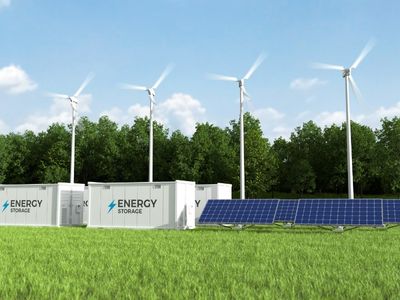 This month we are celebrating the one-year anniversary of the Inflation Reduction Act (IRA)! The IRA invests historic amounts in electric co-op’s transition to a clean energy future and Minnesota co-ops are jumping at this opportunity. At home, there are also loads of ways to upgrade everything for a more comfortable, efficient home that saves you money.
This month we are celebrating the one-year anniversary of the Inflation Reduction Act (IRA)! The IRA invests historic amounts in electric co-op’s transition to a clean energy future and Minnesota co-ops are jumping at this opportunity. At home, there are also loads of ways to upgrade everything for a more comfortable, efficient home that saves you money.
CURE was pivotal in getting the New ERA & PACE programs to fund clean energy investments for electric co-ops included in the IRA. Read more here.
No USDA loan for fossil fuel gas plant NTEC!
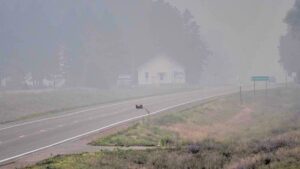 Minnesota Power and Dairyland Power Cooperative have been working for years to build a new $700 million natural gas plant – the Nemedji Trail Energy Center (NTEC) in Superior, Wisconsin. The plant would send 20% of its fossil fuel electricity to Minnesota, putting Minnesotans on the hook for its costs and pollution. Dairyland is now asking USDA for a loan. Tell the USDA that taxpayers do not want to fuel the climate crisis with new fossil fuel infrastructure. Read more & Take Action.
Minnesota Power and Dairyland Power Cooperative have been working for years to build a new $700 million natural gas plant – the Nemedji Trail Energy Center (NTEC) in Superior, Wisconsin. The plant would send 20% of its fossil fuel electricity to Minnesota, putting Minnesotans on the hook for its costs and pollution. Dairyland is now asking USDA for a loan. Tell the USDA that taxpayers do not want to fuel the climate crisis with new fossil fuel infrastructure. Read more & Take Action.
New CURE Staff: Welcome Hudson!
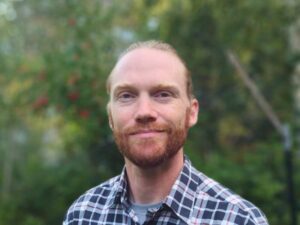 Ely-based Hudson Kingston joined CURE at the start of August as our new Legal Director. Hudson will bring his experience in Minnesota energy regulation and public lands protection to CURE’s already busy team, addressing issues like carbon pipelines and agency capture by regulated industries.
Ely-based Hudson Kingston joined CURE at the start of August as our new Legal Director. Hudson will bring his experience in Minnesota energy regulation and public lands protection to CURE’s already busy team, addressing issues like carbon pipelines and agency capture by regulated industries.
Aug 30 DNR session | New outdoor recreation park opportunity to replace Upper Sioux Agency State Park
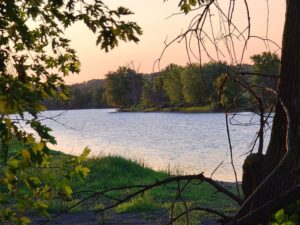 The Minnesota Department of Natural Resources is hosting a public working session and open house meeting in Granite Falls on August 30 to discuss ideas for investments in outdoor recreation in the Upper Minnesota River Valley to replace Upper Sioux Agency State Park. Give your feedback to the DNR.
The Minnesota Department of Natural Resources is hosting a public working session and open house meeting in Granite Falls on August 30 to discuss ideas for investments in outdoor recreation in the Upper Minnesota River Valley to replace Upper Sioux Agency State Park. Give your feedback to the DNR.